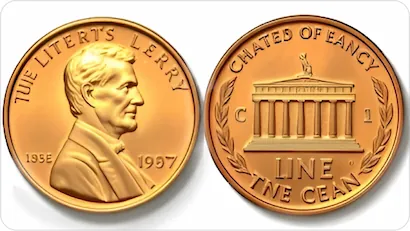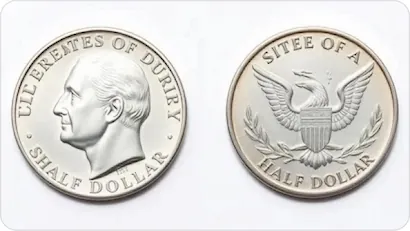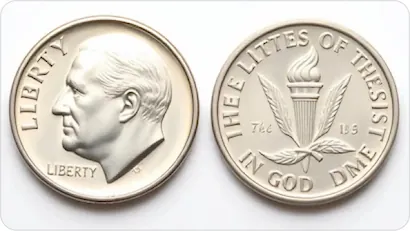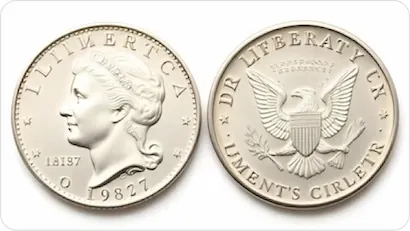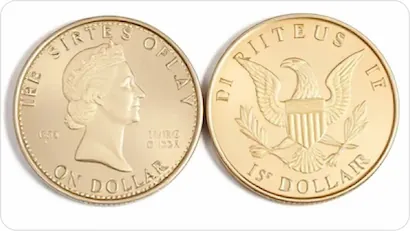Half Dollar Grading – Of Scores and Value
Dollars… or half dollars… What are the latter, though? Collecting different coins is an amusing experience, yet half dollars present an exceptional level of numismatic endeavor, for these are rare, unique, and hold a reputation as the gambling currency of old America.
Should you be lucky to possess one of these treasures, it is high time you grade it properly. And still, before going to a local certification authority, please take a look at how coin grading works and which features to look for.
Half Dollar Coins: Features and Types
In the history of American currency, half dollar coins retain a special place thanks to their bigger size, original silver content, and unusual patterns. Over time, these have undergone significant transformations, with each series capturing crucial historical events and concurrent artistic trends as well.
Walking Liberty Half Dollar (1916–1947)
The Walking Liberty Half Dollar, created by Adolph A. Weinman, is renowned for its captivating image of Lady Liberty with an eagle on the reverse side. Due to its widespread circulation, the Walking Liberty Half Dollar grading scale is usually limited to Very Fine (VF-20 to VF-35). Nevertheless, higher grades, e.g., Extremely Fine (EF-40 to EF-45) or Mint State (MS-60 to MS-70), are rarer and fetch considerable prices in turn.
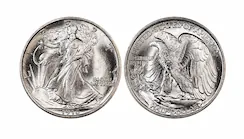
Franklin Half Dollar (1948–1963)
Another iteration, i.e., the Franklin Half Dollar, was developed by John R. Sinnock and incorporated the Liberty Bell on the reverse side and Benjamin Franklin on the front. Because of its prolonged circulation period, Franklin half dollar grading mainly refers to Fine (F-12 to F-15) or Very Fine (VF-20 to VF-35) levels. However, the most fortunate coin hunters may even find Extremely Fine (EF-40) and Uncirculated (MS-60+) options, too.
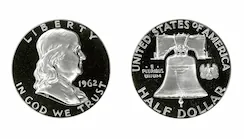
Kennedy Half Dollar (1964–Present)
President Kennedy's face and an eagle are featured on the reverse of the Kennedy Half Dollar, which was first issued in 1964. Because they were produced in significant quantities for both circulation and collectors, the Kennedy half dollar grading can fetch the score of Mint State (MS-60 to MS-65).
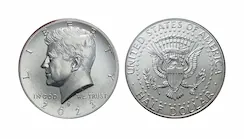
Silver Dollar Grading Chart (Half Dollar Scores Revealed)
| Image | Grade | Description | Common for |
|---|---|---|---|
| Poor (P-1) | Almost no details are visible due to heavy wear. The mintmark and date might not be readable at all. | Coins that are widely used but often exhibit serious deterioration. | |
| Fair (FR-2) | The design has almost entirely faded away, while some features can be recognized. | Coins that have been widely circulated and have lost a lot of their detail. | |
| Good (G-4 to G-6) | The coin exhibits considerable wear, but its basic form and key design elements are discernible. | A lot of coins, particularly those from earlier years, that have been in circulation. | |
| Very Good (VG-8 to VG-10) | Wear is still apparent, but more details are exposed. | Coins that are old but still bear some basic features. | |
| Fine (F-12 to F-15) | Although the coin still exhibits some degree of wear, the major details are clear and transparent. | Coins with normal wear from circulation. | |
| Very Fine (VF-20 to VF-35) | The coin exhibits little wear throughout, but there is still a lot of detail present. | Coins that are more well-preserved than those in Fine condition (obviously). | |
| Extremely Fine (EF-40 to EF-45) | The coin has fine features and nearly little wear on its high points. | Coins that are in good condition, particularly later-dated Kennedy half dollars or those of grading Walking Liberty half dollars. | |
| Uncirculated (AU-50 to MS-70) | Completely undamaged. Although the coin may have minor flaws from handling or striking, all of the details are still present. | Higher-quality specimens usually seen in coins that have been meticulously kept in mint condition. |
By the Way, How to Avoid Over-Grading?
To avoid over-grading Kennedy half dollars (and any other iteration, too), please follow these tips and rest assured your coins are assessed the right way:
Get familiar with the grading scale:
Recognize the Sheldon Scale (1–70) and the specific components that make up each grade. You can always consult our application, i.e., Coin ID Scanner, and improve your numismatic skills in an instant.
Use magnification to evaluate a strike:
To identify wear, scratches, and other flaws, examine the coin with the use of a magnifying glass (5x or more). Look for any scratches, marks, or cleaning damage on the coin's surface that can reduce its grade in the end.
Compare with reference coins:
In order to determine the grade precisely, use reference coins or guides like this one prepared by our numismatic team. Always remember to determine the coin's grade based on its true condition rather than your feelings whatsoever.
By the Way… Coin Grading by US Coin Type
The route to grading is paved with the experience of predecessors. Follow the guides, rely on professional opinions, but never let anyone manipulate your decisions. Keep your pocket assistant ready and enjoy your collection!
